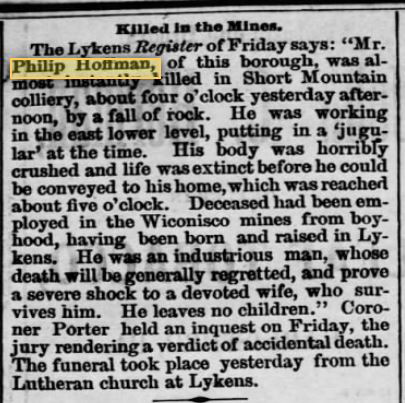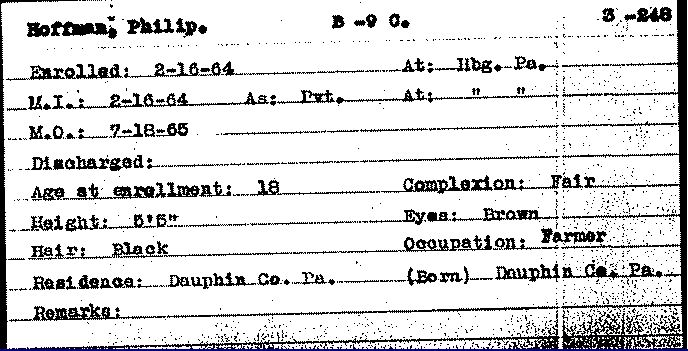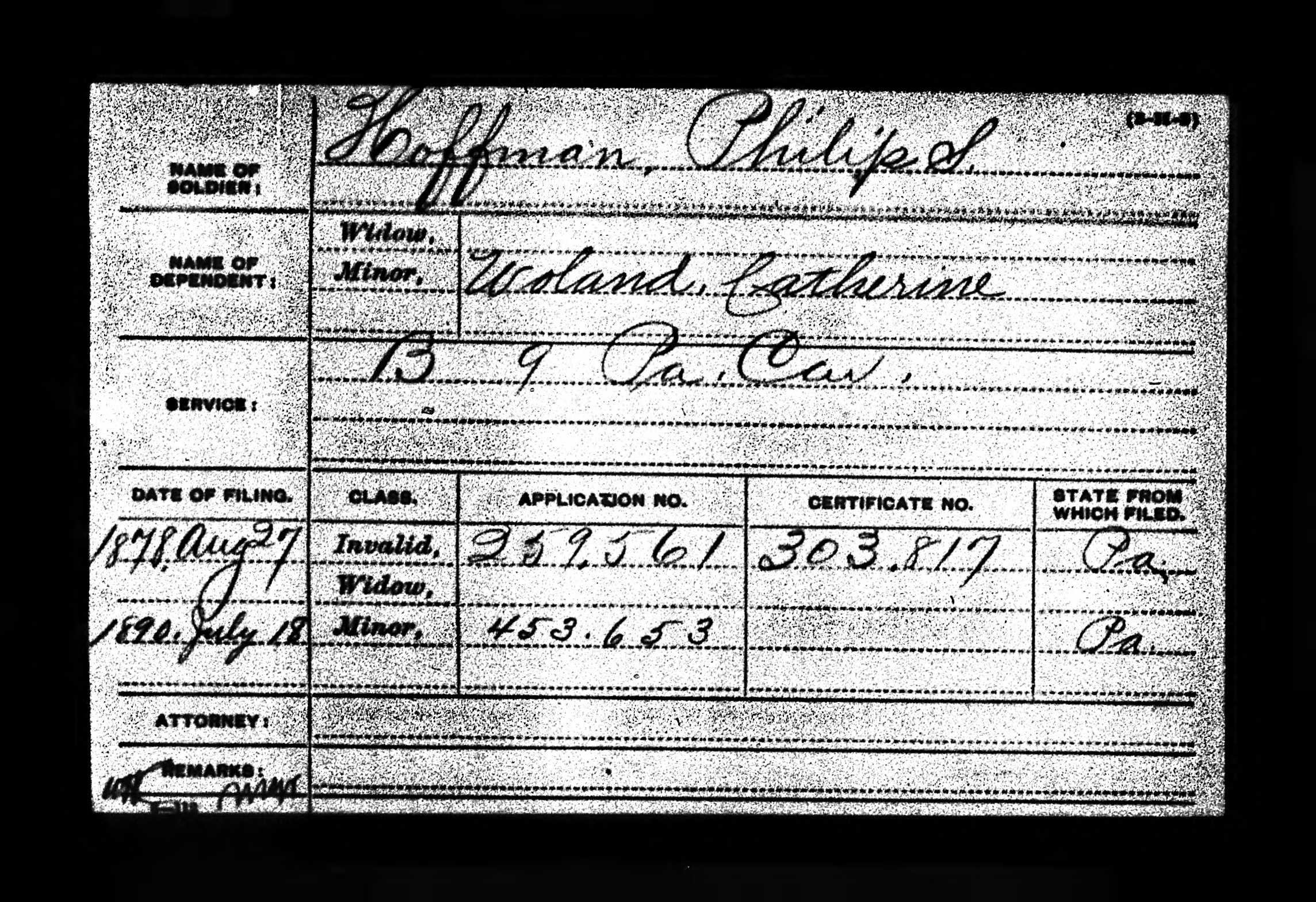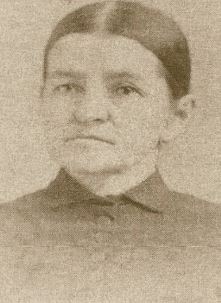Philip Hoffman – Killed in Mines, 1878
Posted By Norman Gasbarro on October 2, 2015
On 21 November 1878, Philip Hoffman of Lykens Borough, Dauphin County, was killed in a mine accident at Short Mountain Colliery. The notice of his accidental death appeared in the Lykens Register and was reprinted in the Harrisburg Telegraph of 25 November 1878:
Killed in the Mines.
The Lykens Register of Friday says: “Mr. Philip Hoffman of this borough, was almost instantly killed in Short Mountain Colliery, about four o’clock yesterday afternoon, by a fall of rock. He was working in the east lower level, putting in a ‘jugular’ at the time. His body was horribly crushed and life was extinct before he could be conveyed to his home, which was reached about five o’clock. deceased has been employed in the Wiconisco mines from boyhood, having been born and raised in Lykens. He was an industrious man, whose death will be generally regretted, and prove a severe shock to a devoted wife, who survives him. He leaves no children” Coroner Porter held an inquest on Friday, the jury rendering a verdict of accidental death. The funeral took place yesterday from the Lutheran Church at Lykens.
Several comments can be made about the what is included or not included in the obituary:
First, Philip Hoffman was a Civil War veteran, not mentioned in the obituary. As shown by the Pennsylvania Veterans’ File Card (above, from the Pennsylvania Archives). On 16 February 1864, he enrolled at Harrisburg in the 9th Pennsylvania Cavalry, Company B, as a Private and was mustered into service the same day. At the time, he claimed to be 18 years old, was about 5 foot, 5 inches tall. He had black hair, brown eyes, and a fair complexion. He was a farmer. He state that he was born in Dauphin County and resided in Dauphin County.
For his service in the Civil War, he was recognized on the Lykens-Wiconisco G.A.R. Monument which was erected in the early part of the 20th Century. However, since his death occurred in 1878, he was no a member of the Heilner Post at Lykens.
On 27 August 1878, Philip Hoffman applied for a Civil War pension, which according to the Pension Index Card (above, from Ancestry.com), he received. However, we know that Philip died on 21 November 1878., so with the usual time lag between application and the actual awarding of the pension, Philip most likely never knew that the pension was awarded and the payment was collected by his widow as a lump sum and terminated the day of his death. The obituary also stated that he was married and had no children. Why then did no widow apply and why was a minor’s application submitted on 18 July 1890? To answer that question we must research the guardian, Catherine Woland.
Catherine Woland was Catherine “Katie” Rickert (1844-1909). She was the wife of Philip Hoffman and was left his widow when he was killed in the mines in 1878. At that time she was pregnant (not mentioned in the obituary), and a daughter, Hattie Hoffman was born in March 1879, several months after her father’s death. In order to support the child, Katie [Rickert] Hoffman married John Woland (1830-1910). Pension rules at the time prevented a widow who re-married from collecting benefits for herself and she would have to prove that any minor child born to herself and the deceased soldier actually was a legitimate child of the soldier and her. However, she applied as guardian for her daughter Hattie, but was denied benefits. A check of the minor’s application file (which has not been consulted for this post) will most likely give the reason for the denial. There were no known children between John Woland and Katie, but John Woland was known to have had a daughter with his first wife who died in 1884. That daughter, Mary Alice Woland, was an adult when her father remarried, and in fact, in 1884, had married Norman Seiler Manley. John Woland was not a veteran of the Civil War so he was ineligible for a pension.The final issue is the birthplace and parentage of Philip Hoffman. The only possible census records in the Lykens-Wiconisco area show a Philip Hoffman who was born in Germany, not in Pennsylvania. There is no direct evidence that the Philip Hoffman who died in the mines is the same person as the German-born Philip Hoffman named in the census. The main Hoffman family in the Lykens Valley area was descended from Johann Peter Hoffman, an early settler – but there were other Hoffman’s, some of whom were relatively recent immigrants from Germany. Perhaps a reader of this blog can answer this mystery – was the Philip Hoffman who died in the mines born in Pennsylvania or Germany and who were his parents?
Fortunately, the Harrisburg Telegraph reprinted the obituary as it appeared in the Lykens Register. Previously on this blog, on 7 January 2014, Jake Wynn posted an article entitled “Fire Destroys Lykens Register, 1900.” Nearly all the back issues of the Lykens Register were destroyed in that fire and now, for the most part, only those articles that were picked up and reprinted by other newspapers are among those that were saved.
—————————–
The obituary clipping is from Newspapers.com.
 ;
;







Comments